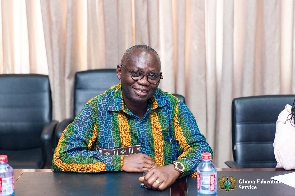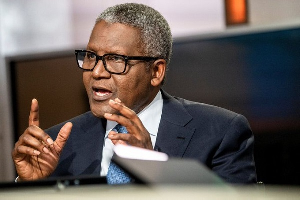Former President John Mahama recently chastised the government for pulling Ghana out of the West African Senior School Certificate Examination (WASSCE) since 2016.
According to the former President, the action by the government has led to fallen standards by the Ghanaian students in the WASSCE.
Contrary to former President Mahama’s assertion, Ghana continues to write and excel in WASSCE.
• Ghana is a founding member and continues to be a member of the five-member West African Examinations Council and has not at any point in time, since it joined in 1952, pulled out or attempted to pull out of the council’s activities. Ghana hosts the Headquarters of WAEC.
• Ghana writes WASSCE with all member countries.
• Indeed, the title of the WAEC press release dated December 18, 2023, announcing the release of the WASSCE 2023 results is indicative of the kind of exams Ghanaian SHS students write:
Release of Provisional Results for the West African Senior School Certificate Examination (WASSCE) for School Candidates 2023.
• Ghana has not pulled out of WASSCE. Rather, in 2020, at the peak of the COVID-19 pandemic and the global shutdown which affected the education sector the most, Ghana, under the able leadership of President Nana Addo Dankwa Akufo-Addo and the Education Minister then, Dr Matthew Opoku Prempeh, indicated to WAEC the country’s willingness to let its final-year students write the WASSCE, despite the COVID-19 scare.
• Initially, the other four member countries (Nigeria, The Gambia, Serra Leone and Liberia) did not subscribe to the idea. However, Ghana managed to pull them along and got the examination written as scheduled.
• Ghana equally wrote the WASSCE 2021 with all four member countries using the same schedule.
• In early 2022, after careful analysis and projections into the future of the effects of the COVID-19 pandemic on education, Ghana proposed a transitional academic calendar for SHS for consideration and adoption by WAEC member countries.
The objective was to support students to catch up with lost contact hours — almost 12 months — resulting from the COVID-19 pandemic.
• The other four member countries accepted Ghana’s transitional academic calendar in principle but indicated they had already reverted to the old school calendar — September to July — immediately after the COVID-19 pandemic, and, therefore, would write their WASSCE during the original May/June period.
• Ghana was, however, permitted to operate its transitional academic calendar and subsequently wrote the WASSCE 2022 and 2023 on a different schedule, albeit of the same standard set for all WASSCE candidates.
• Ghana is not the first to write WASSCE using a different schedule.
In 2014, during the peak of the Ebola outbreak, WAEC member countries Liberia and Sierra Leone were permitted to write WASSCE on a schedule different from other member countries, albeit of the same standard.
• All WASSCE go through international standards in terms of items development (setting the questions), writing the paper, supervision, setting the marking scheme and marking, fixing the grades and checking irregularities before the results are approved and released.
• Ghana continues to take part in WAEC’s International Excellence Awards. In 2022, even though Ghana wrote WASSCE using a different schedule, Ghana still participated in and won the first and second positions of the top three awards at the International Excellence Awards held in Banjul, The Gambia, in March 2023.
• Messrs Alex Manu and Benjamin Eyram Nana Kwame Degbey, both from St James Seminary SHS, respectively won the first and second positions at the International Excellence Awards for WASSCE 2022.
Professor Opoku-Amankwa,
Former Director-General, GES.
Opinions of Tuesday, 23 January 2024
Columnist: Professor Opoku-Amankwa















